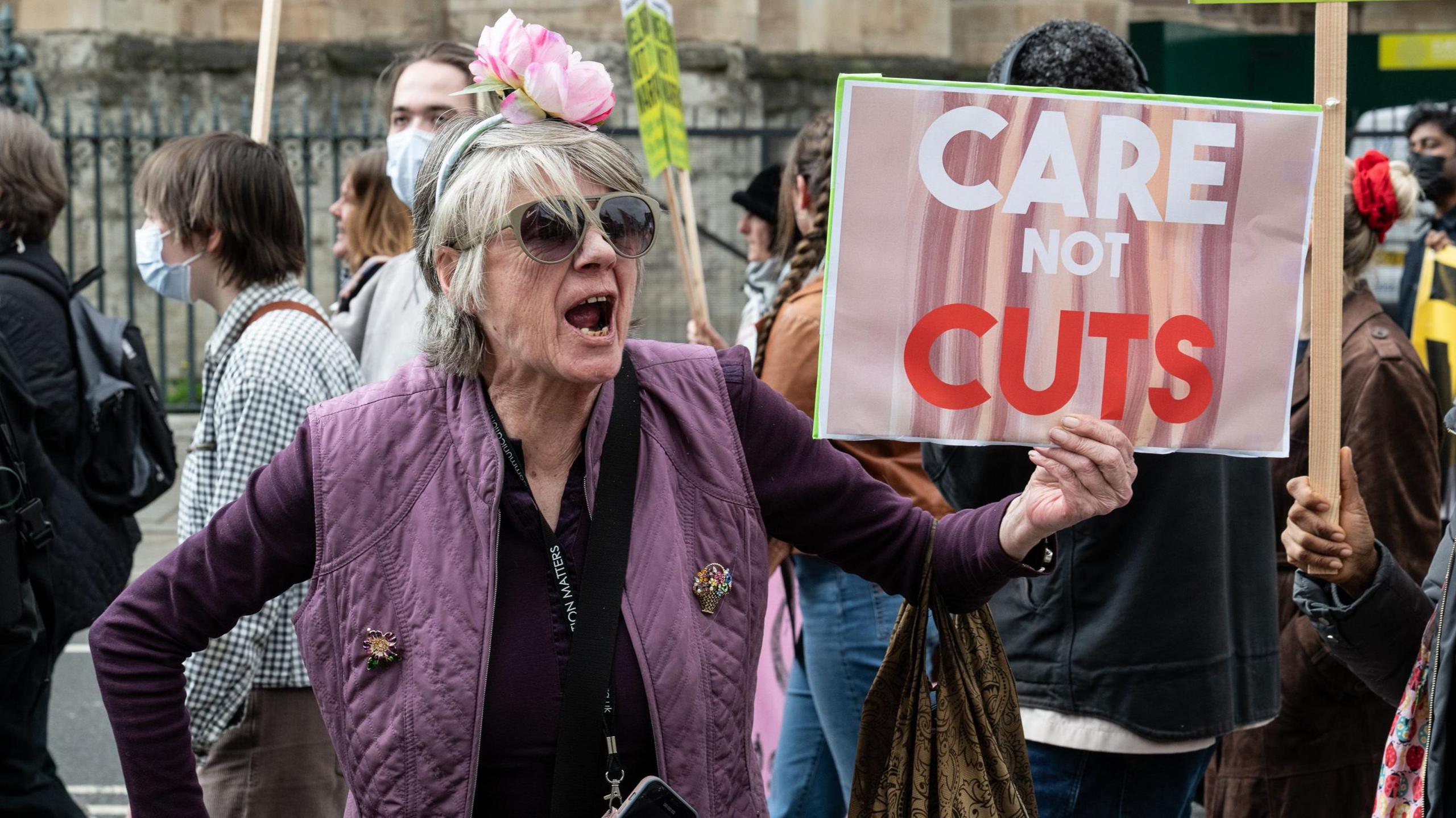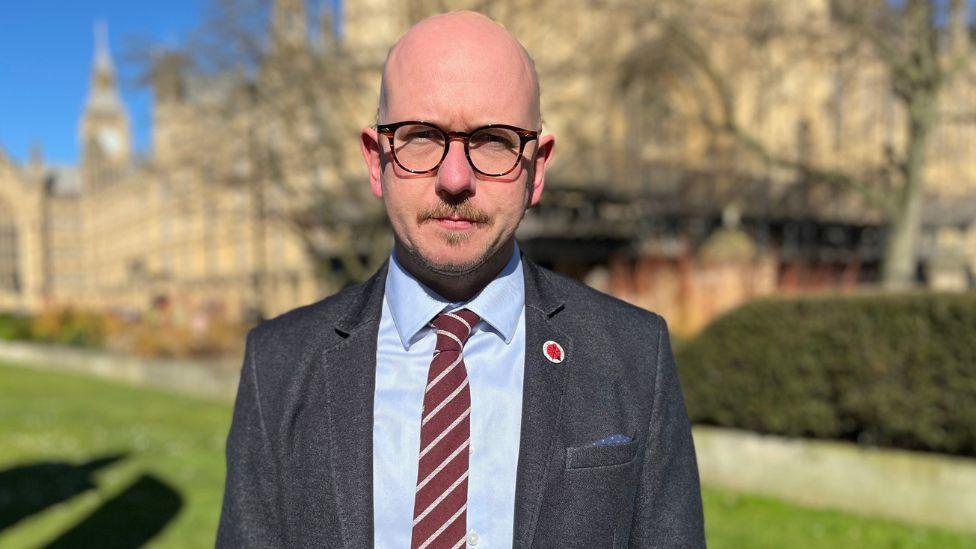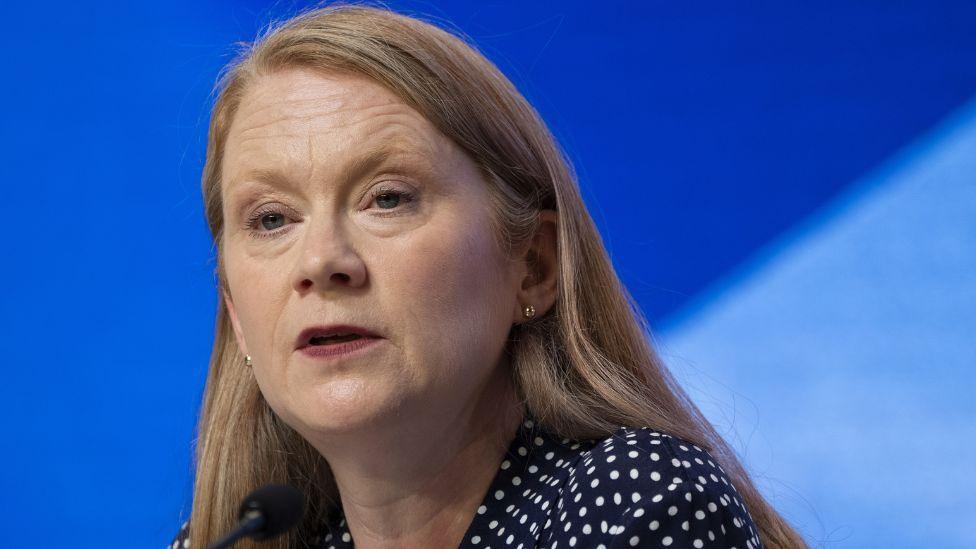No plan to plug £770m disability benefits gap - watchdog

The adult disability payment is forecast to create a £770m gap between funding and spending by 2030
- Published
The Scottish government has no plan to fill a £770m funding gap in its disability benefits, according to a report from Audit Scotland.
The Scottish Fiscal Commission said the funding gap for devolved social security spending is predicted to reach £2bn by 2029/30.
About £770m of that gap is from the adult disability payment (ADP), which replaces the personal independence payment (Pip) in Scotland.
Social Justice Secretary Shirley-Anne Somerville said the government is taking action to improve the sustainability of public finances.
The Scottish government spent £2.6bn on ADP and Pip payments in 2023-24, which was £141m more than the funding available.
Benefits spending
The report from Audit Scotland says the Scottish government has not yet set out a detailed strategy for how it will manage the forecasted gap between social security funding and spending within its overall budget.
ADP accounts for the largest part of the benefits gap.
The public spending watchdog said there was no strategy in place to manage risks from any UK decisions on benefit spending that could reduce the size of the Scottish budget.
ADP was brought in to replace Pip earlier this year. It was intended to be less intrusive and give claimants more dignity.
A report commissioned by ministers previously said the payment was a "great foundation" which was "significantly more compassionate" than benefits on offer in the rest of the UK.
Around 500,000 people now receive the benefit. Of those, over 318,000 have been transferred from Pip to ADP, and nearly 160,000 are new ADP applicants.

Social Justice Secretary Shirley-Anne Somerville said the government was working to make public finances more sustainable
Audit Scotland said the Scottish government's approach to ADP, which includes improving benefit take-up and having lighter touch award reviews, costs more money than Pip.
However, the report noted that the application process was less difficult for claimants compared to Pip.
It commended the progress that the Scottish government and Social Security Scotland have made in delivering ADP to ensure claimants are treated with dignity, fairness and respect.
The Auditor General, Stephen Boyle told BBC Radio's Good Morning Scotland programme the government has "work to do" to tackle the gap.
He said: "We're clear in saying the Scottish government needs to really analyse what's value for money in this process, what's making the biggest difference so that it can manage both the experience that people get but also what it means for Scotland's fiscal position in years to come.
"There needs to be a plan to deal with what are hugely significant numbers in order to avoid what we've seen as mid-year interventions.
"Really difficult processes to balance the books at the end of March each year have to be accompanied by a much more structured plan about how the government is going to deal with the scale of divergence between the money it gets and what is spending."
'Ballooning benefits bill'
Scottish Conservative social security spokesman Alexander Stewart said the SNP needed to "get a grip of their ballooning benefits bill".
He added: "Audit Scotland have made it clear that the nationalists are burying their heads in the sand when it comes to how they will afford this in the coming years.
"Economic experts have made it clear that if the SNP don't act on this then hard-pressed Scots will face more tax rises or cuts to public services."
Social Justice Secretary Shirley-Anne Somerville welcomed the report and said the Scottish government would "unapologetically continue to prioritise measures to reduce poverty and inequality".
She said: "Benefit expenditure is the result of our conscious decision to invest in the people of Scotland.
"Here, when somebody is eligible for support, they meet a humane system.
"Our efforts are possible because we balance our budget every year despite over a decade of austerity and punitive welfare cuts from successive UK governments."
She added: "I continue to call on the UK government to reverse its plan to cut the health element of universal credit, which will cost around 77,000 households in Scotland £3,000 a year by 2029-30.
- Published2 July

- Published24 June

- Published18 March
